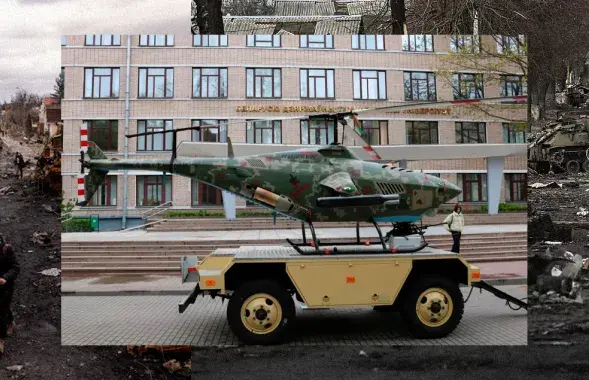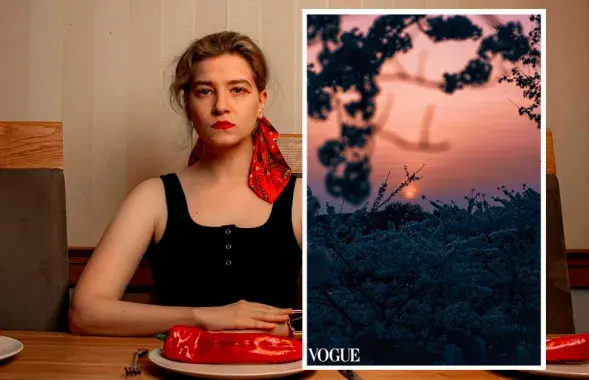Radzina:We are modest people, we are used to working on our knees (UPDATED)
The editor of the Charter'97 web-site lived in Moscow for 4 months, and asked for political asylum in Lithuania on August 4. (Interview added)
Radzina tells about the four months which passed after her escape from Kobryn in a big article, published by Charter'97. She spent almost all this time in Moscow, waiting for the UNO to consider her a political refugee. Right after that Radzina flew to Amsterdam, where she obtained an official status, and then - to Lithuania.
At present moment, Natallia Radzina is in Vilnius. She plans to continue her work at the web-site "Charter'97".
Let us remind you, Natallia Radzina got to the KGB prison after December 19 and spent several months there. She was released on recognizance. Natallia Radzina disappeared in the beginning of April. Her whereabouts were unknown until now.
Euroradio: Why did you decide to ask for
political asylum exactly in Lithuania? When did you take this decision?
Radzina: “Initially,
I planned to go to Lithuania due to one simple reason - employees of the
web-site "Charter'97" managed to move to this country after my
arrest, after the presidential election. The web-site was officially registered
here and members of my collective are all here, therefore, it is the easiest
for me to perform the functions of the web-site's editor in Vilnius”.
Euroradio: Now, after the
scandal with passing bank accounts of the Belarusian opposition activists to
the official Minsk by the Lithuanian side, have your attitude to this country
changed?
Radzina: “This
is a rather complicated question. Of course, I have suspicions, of course, I am
alarmed, this is natural, in such a situation. I hope that the Lithuanian
authorities will be more careful and more responsible with regard to political
refugees and democratic activists from Belarus, will consider every case more
thoroughly and attentively, after this incident”.
Euroradio: How would you comment the
situation with the arrest of human rights defender Ales Bialiatski?
Radzina: “This
situation revealed the real state of facts. Unfortunately, many European
officials prefer declarative statements better than concrete actions, and these
statements often have nothing in common with the actions. We can see what is
happening at Ales Bialiatski's example. From the one side, great quantities of
statements in support of the Belarusian democratic forces are adapted, but
there is no support in the reality. This is not a single case, unfortunately,
and I would really like Europe to understand that it is time to conduct real
politics instead of declarative one. It is time to build relations with Belarus
on the basis of democratic principles and to be more high toned against the
dictatorship regime”.
Euroradio: Aren't you afraid that the information
connected with the group of "Charter" creators may also get to Minsk?
Radzina: “We
are just journalists, we have no bank accounts, so I am not afraid. I have no
personal bank accounts in Vilnius. However, what concerns me is that really
many democratic non-governmental organizations had to open bank accounts here
in order to maintain their activity in Belarus. All of them are under threat
now”.
Euroradio: There was information that
"Charter" had financial difficulties, is it true?
Радзіна: “The situation is complicated and I dislike it,
as one of the most active and popular internet-resources turns out to be in a
situation when it may find itself with no financial support whatsoever. This is
also the reason for the European officials to think where all the money donated
by the EU for development of democracy in Belarus really goes to”.
Euroradio: How did "Charter"
obtain registration in Lithuania?
Radzina: “The
web-site "Charter'97" is registered officially in the Lithuanian
Ministry of Justice as an organization”.
Euroradio: Did they know in
Minsk that you were in Moscow? Were there any attempts to bring you back to
Belarus from Moscow?
Radzina: “I
was really very careful. I did not appear in public places, I was in a narrow
circle of very good friends, the people whom I trust. I never called to Belarus
from my Russian numbers. I talked only to my mother on Skype, she did not know
where I was. She was sure it was somewhere in Europe. Therefore, it is hard for
me to say whether they knew. Maybe, they guessed”.
Euroradio: In your opinion,
whose input in the fact that you were not extradited to Belarus is bigger - the
Russian authorities' or human rights defenders'?
Radzina: “This
is common work. In the first place, of course, of human rights organizations,
European and American politicians. And of course I am glad that the Russian
authorities did not extradite me”.
Euroradio: Who helped you to
get settled in Vilnius?
Radzina: “I
have just arrived to Vilnius, literally several days ago. We rent an apartment
in which we work and live. We are modest people who got used to working practically
on our knees back in Belarus, the most important thing for us is to work
whatever happens”.
Photo — kilgor-trautt.livejournal.com

















